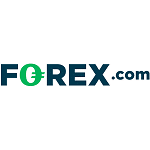Contracts for Difference (CFDs) allow traders to speculate on the price movements of various assets without owning the underlying security. While CFDs offer leverage and the potential for significant gains, they also carry considerable risk. In Canada, CFD trading is subject to strict regulations to ensure transparency and investor protection. This guide outlines who regulates CFD trading in Canada, what CFDs can be traded, and the biggest CFD brokers for Canadian traders.
| CFD Broker | CFD | NRIA | RRSP | TFSA | RESP | Futures | Options | Customer Reviews | More Info |
|---|---|---|---|---|---|---|---|---|---|
 | ✔ | ❌ | ❌ | ❌ | ❌ | ❌ | ❌ | 4.1
(Based on 16 reviews)
| Visit Broker Capital at risk |
 | ✔ | ✔ | ✔ | ✔ | ❌ | ✔ | ✔ | 4.4
(Based on 934 reviews)
| Visit Broker Capital at risk |
 | ✔ | ✔ | ❌ | ❌ | ❌ | ❌ | ❌ | 3.7
(Based on 148 reviews)
| Visit Broker Capital at risk |
| AvaTrade | ✔ | ✔ | ❌ | ❌ | ❌ | ✔ | ❌ | 0.0
(Based on 0 reviews)
|
Who Regulates CFD Trading in Canada?
CFD trading in Canada is regulated by multiple financial authorities to protect investors and maintain market integrity:
Investment Industry Regulatory Organization of Canada (IIROC)
- IIROC oversees all securities and derivatives trading in Canada, including CFDs.
- It enforces leverage limits, risk disclosure requirements, and compliance rules for brokers offering CFD trading.
Canadian Securities Administrators (CSA)
- The CSA is an umbrella organization of provincial regulators, such as the Ontario Securities Commission (OSC) and the British Columbia Securities Commission (BCSC), which regulate CFD trading within their jurisdictions.
- Some provinces have stricter rules on leverage and trading conditions.
Provincial Regulators
- Each province has its own securities commission that sets additional guidelines on CFD trading.
- In some provinces, CFDs are classified as high-risk investments and require brokers to meet strict compliance standards.
What CFDs Can You Trade in Canada?
Canadian traders can access a variety of CFD markets, including:
Stock CFDs
- Trade price movements of Canadian and international stocks without owning the underlying shares.
- Popular stocks for CFD trading include Shopify (SHOP), Royal Bank of Canada (RY), and Canadian Natural Resources (CNQ).
Index CFDs
- Speculate on major stock indices such as the S&P/TSX 60, S&P 500, and Nasdaq 100.
- Provides exposure to the broader stock market.
Forex CFDs
- Trade currency pairs such as USD/CAD, EUR/CAD, and GBP/CAD.
- Popular among traders due to high liquidity and 24-hour market access.
Commodity CFDs
- Trade price movements of commodities like gold, oil, and natural gas.
- Canada’s strong commodity sector makes these CFDs attractive to traders.
Cryptocurrency CFDs
- Some brokers offer CFDs on Bitcoin, Ethereum, and other cryptocurrencies.
- Crypto CFDs allow speculation without needing to hold digital assets.
Biggest CFD Brokers in Canada
Several IIROC-regulated brokers offer CFD trading in Canada. Some of the largest brokers include:
- One of the largest CFD brokers in Canada.
- Offers access to thousands of global markets with competitive spreads.
Interactive Brokers Canada
- Provides CFD trading on stocks, indices, forex, and commodities.
- Known for its low commissions and advanced trading tools.
OANDA Canada
- Specializes in forex and index CFDs.
- Regulated by IIROC and known for tight spreads and strong research tools.
FXCM Canada
- Offers forex and index CFDs with a focus on educational resources.
- Provides advanced trading platforms and analytics.
TD Direct Investing
- A major Canadian broker with limited CFD offerings.
- More suitable for stock and ETF trading but offers derivatives for active traders.
CFD trading in Canada is strictly regulated by IIROC, the CSA, and provincial regulators to ensure transparency and investor protection. Traders can access a wide range of CFD markets, including stocks, indices, forex, commodities, and cryptocurrencies.
Several IIROC-regulated brokers provide competitive pricing and trading platforms tailored for both beginner and advanced traders. Choosing the right broker depends on factors such as commission costs, platform features, and market access.

